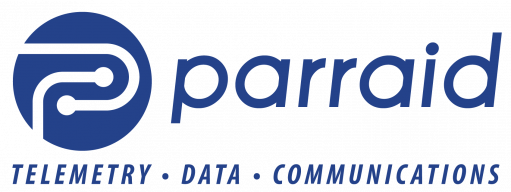In the digital era, managing multiple websites efficiently is essential for businesses aiming to establish a strong online presence. Multi-domain hosting emerges as a solution, offering convenience and cost-effectiveness for hosting multiple domains under one account. Let's delve into the intricacies of multi-domain hosting and understand its significance in website management.
Advantages of Multi-Domain Hosting
Multi-domain hosting presents several advantages, making it an attractive option for businesses and website owners. Firstly, it offers cost-effectiveness by allowing multiple domains to share the same server resources, reducing overall hosting expenses. Additionally, it simplifies management tasks by centralizing control and administration, streamlining the process of website maintenance and updates. Moreover, multi-domain hosting provides enhanced SEO benefits, as it allows websites to share link juice and domain authority, potentially improving search engine rankings for all hosted domains.
How Multi-Domain Hosting Works
Multi-domain hosting operates by allocating shared resources, such as disk space, bandwidth, and computing power, among multiple domains hosted on the same server. Each domain is isolated from others to ensure independent operation and security. A centralized control panel facilitates easy management of all hosted domains, allowing users to add, remove, or modify domains as needed.
Choosing the Right Multi-Domain Hosting Provider
When selecting a multi-domain hosting provider, several factors should be considered. These include reliability, scalability, customer support, and pricing plans. Popular hosting providers offering multi-domain hosting include Bluehost, SiteGround, and HostGator, each with its unique features and offerings tailored to different business needs.
Setting Up Multi-Domain Hosting
Setting up multi-domain hosting involves a straightforward process, typically guided by the hosting provider's instructions. Users are required to point their domain names to the hosting server and configure settings within the control panel to add each domain to the hosting account. Following best practices and tips for smooth integration ensures a hassle-free setup experience.
Managing Multiple Domains Efficiently
Efficient management of multiple domains is crucial for maximizing the benefits of multi-domain hosting. Organizational strategies, such as grouping related domains and utilizing automation tools for routine tasks, can significantly streamline management processes and improve productivity.
SEO Considerations for Multi-Domain Hosting
From an SEO perspective, multi-domain hosting requires careful consideration to avoid duplicate content issues and maintain optimal website performance. Implementing proper redirects, utilizing canonical tags, and leveraging geo-targeting options can help mitigate potential SEO challenges associated with hosting multiple domains on the same server.
Scalability and Flexibility
One of the key advantages of multi-domain hosting is its scalability and flexibility. As businesses grow, they can easily add or remove domains from their hosting account without disrupting existing operations. This scalability ensures that businesses can adapt to changing needs and accommodate future expansion seamlessly.
Security Measures for Multi-Domain Hosting
Security is paramount in multi-domain hosting environments. Isolating domains from each other helps prevent security breaches and unauthorized access. Additionally, managing SSL certificates for each domain ensures encrypted communication and data protection, enhancing overall security posture.
Common Challenges and Solutions
While multi-domain hosting offers numerous benefits, it also presents challenges such as performance optimization and resource allocation issues. By implementing solutions such as caching mechanisms and resource allocation policies, businesses can overcome these challenges and optimize the performance of their hosted domains.
Customer Support and Assistance
Responsive customer support is essential when choosing a multi-domain hosting provider. Prompt assistance and resources for troubleshooting issues can greatly alleviate concerns and ensure a positive hosting experience for users. Hosting providers offering 24/7 customer support and comprehensive knowledge bases are preferred choices for businesses seeking reliable hosting solutions.
Case Studies
Real-world case studies provide valuable insights into the practical applications of multi-domain hosting. Success stories of businesses leveraging multi-domain hosting to improve efficiency, scalability, and SEO performance offer valuable lessons and inspiration for others considering similar hosting solutions.
Future Trends in Multi-Domain Hosting
As technology continues to evolve, the landscape of multi-domain hosting is expected to undergo significant transformations. Advancements in cloud computing, virtualization, and automation are likely to shape the future of multi-domain hosting, offering even greater scalability, flexibility, and performance optimization capabilities.
Conclusion
In conclusion, multi-domain hosting offers a versatile and cost-effective solution for businesses looking to manage multiple websites efficiently. By centralizing resources, streamlining management tasks, and enhancing SEO benefits, multi-domain hosting empowers businesses to establish a robust online presence and adapt to changing market dynamics effectively.
